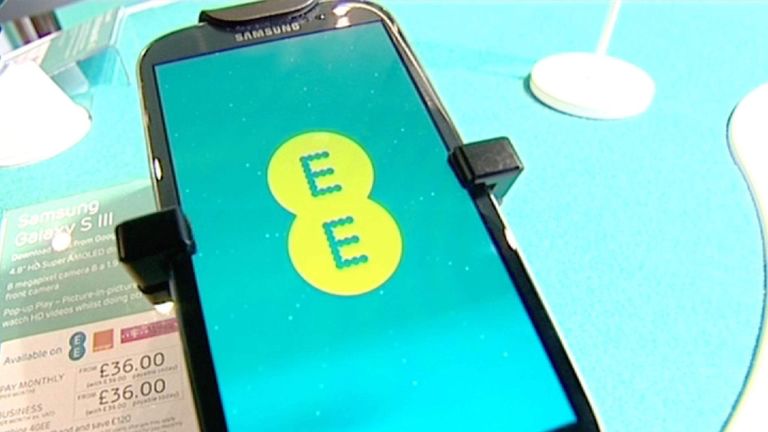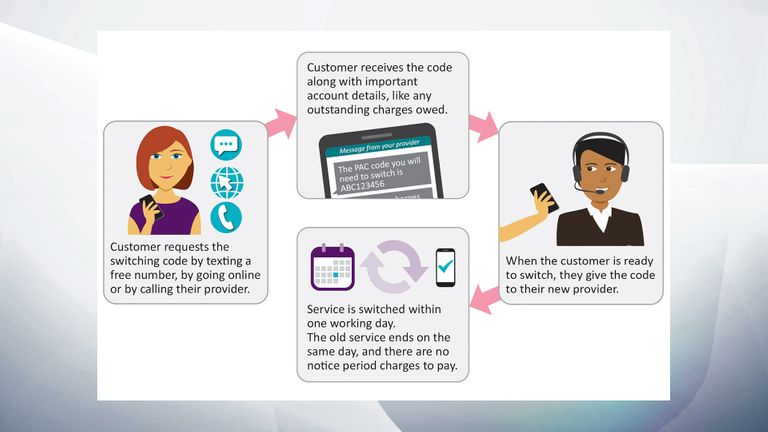The telecoms regulator has confirmed it is to ban mobile phone operators from selling locked handsets.
Ofcom, which first floated the idea in December last year, said the move would be implemented from December 2021 to make switching providers easier for consumers.
It said the rule was targeting companies still selling devices which cannot be used on other networks, unless they are unlocked for a fee – usually around £10.
They included, Ofcom stated, BT/EE, Tesco Mobile and Vodafone while it said O2, Sky – the owner of Sky News – Three and Virgin all choose to sell unlocked handsets.
The watchdog said its research found the issue was putting more than a third of people off switching with their existing handset and potentially getting a better deal.
It also cited time-consuming difficulties experienced by many consumers who currently need to be sent a code to unlock their device.
Ofcom said frustrations included failed codes and a loss of service during the unlocking process.
The move builds on the regulator’s earlier work to make switching providers easier, which included the “text-to-switch“ service.
Its connectivity director, Selina Chadha, said: “We know that lots of people can be put off from switching because their handset is locked.
“So we’re banning mobile companies from selling locked phones, which will save people time, money and effort – and help them unlock better deals.”
Ofcom said a broader package of measures would support the switching process.
This included mobile and broadband operators being forced to send prospective customers a summary of their contract terms in advance of a sale.
The regulator said it would also be holding a consultation on a simpler process for switching broadband provider.


